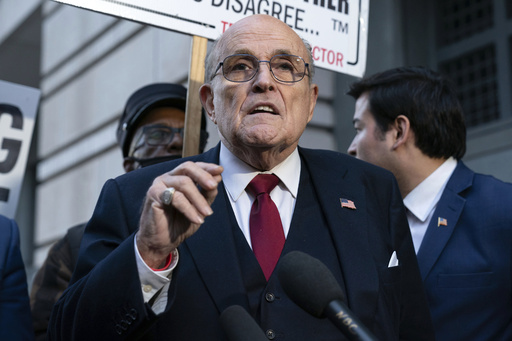A federal judge dismissed the bankruptcy case of former New York Mayor Rudy Giuliani, citing his lack of cooperation and failure to comply with court orders and disclose income sources. The decision allows Giuliani’s creditors to pursue other legal actions to collect debts, including seizing his assets, while enabling Giuliani to appeal a $148 million defamation verdict.
U.S. Bankruptcy Judge Sean Lane criticized Giuliani, labeling him a “recalcitrant debtor” who evaded the bankruptcy process to avoid the defamation judgment and other debts. Lane raised concerns about Giuliani funneling income into entities he owned without reporting it, failing to disclose his “Rudy’s Coffee” brand, and withholding information about a book contract.
Initially filing for bankruptcy in December after a defamation verdict, Giuliani’s lawyers eventually requested the case’s dismissal. With the case now rejected, creditors can seek to recoup debts through collection actions, foreclosures, or court-ordered asset seizures, including the former election workers pursuing enforcement of their judgment.
Giuliani’s financial state showed debts totaling nearly $153 million, including tax liabilities, legal fees, and potential lawsuit judgments. His recent financial disclosure revealed minimal cash assets while drawing down on a retirement account. Despite the setback, Giuliani’s camp anticipates vindication in court concerning his financial troubles.


